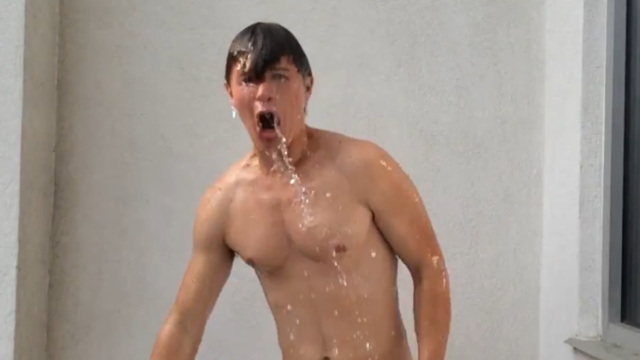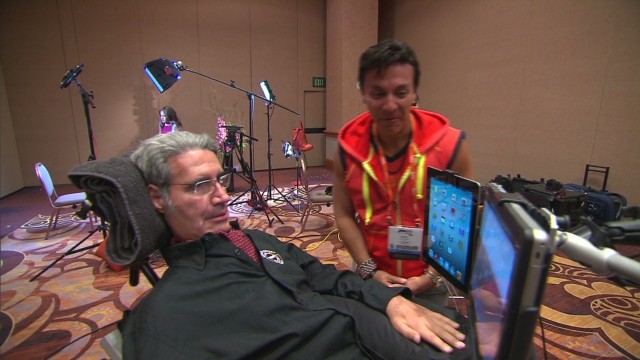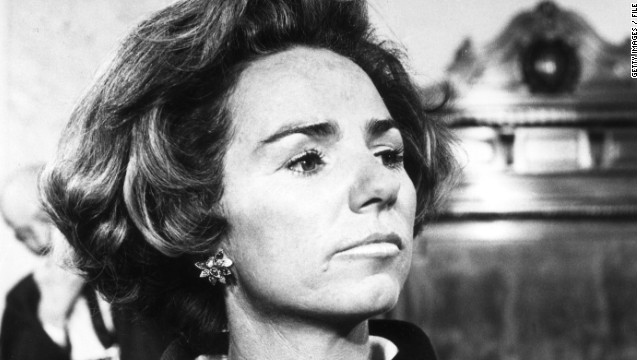Story highlights
- Ice Bucket Challenge goes viral for ALS
- Athletes, celebrities have taken up the cause of Lou Gehrig's disease
- The concept was invented by Pete Frates, a former college baseball player
- Kennedys challenged Obama, who opted to make a donation
Let's face it -- it doesn't take much to convince us to do ridiculous things, document them and share them on the Internet.
Make it for a good cause, and you get a viral sensation that starts with a single person and rides the wave of social media all the way to Hollywood, the White House and sports stadiums around the world.
The Ice Bucket Challenge is a social media campaign that aims to raise awareness and money to fight Lou Gehrig's disease, also called amyotrophic lateral sclerosis, or ALS.
And it's simple, in the same way that laying stiff as a board in weird places or dancing the "Harlem Shake" is simple. Dump a bucket of ice-cold water over your head, then challenge a friend, or friends, to either do the same or donate money to the The ALS Association. Make a video of the whole thing and post it to your social media accounts.
Voila! You've completed the #IceBucketChallenge.
And while most viral Web trends tend to crop up, then disappear without accomplishing much other than providing a few chuckles, the Ice Bucket Challenge is making a difference.
The ALS Association reports that it, and its 38 chapters, received $4 million in donations in just two weeks. Last year during that same time period, July 29-August 12, the association brought in $1.1 million.
"We have never seen anything like this in the history of the disease," said Barbara Newhouse, president and CEO of The ALS Association, in a news release. "We couldn't be more thrilled with the level of compassion, generosity and sense of humor that people are exhibiting as they take part in this impactful viral initiative."
It all started with Pete Frates, a former baseball player at Boston College who has been living with ALS since 2012. He floated the idea and his former teammates, as well as other Boston-area athletes, took him up on it. It was noticed and covered by local media and that attention, along with the social Web's viral nature, launched it onto a much larger stage.
Athletes, celebrities and politicians, as well as everyday folks, have gotten in on the act.
For example, Atlanta Falcons quarterback Matt Ryan, himself a Boston College alum, took the challenge last week, then challenged his wide receiver corps -- Roddy White, Julio Jones and Harry Douglas -- to do the same. So far, Douglas and White have taken him up on it, with Douglas passing the challenge along to Cleveland Cavaliers star Lebron James and White challenging fellow NFL players Champ Bailey, Larry Fitzgerald and Eric Weems.
(Of course for the Falcons, who are currently being profiled on HBO's documentary series "Hard Knocks," a bucket of ice water might not have seemed so bad during training camp in the Georgia heat).
And leave it to a hockey player to try to show he's tougher than everybody else.
NHL player Paul Bissonnette, most recently of the Phoenix Coyotes, posted a YouTube video of himself in his underwear, having frigid glacier water dumped on him by a helicopter. He, too, called out James, as well as NFL quarterbacks Aaron Murray and Russell Wilson.
Jimmy Fallon, Martha Stewart, and Justin Timberlake are among the celebrities who have gotten wet for the cause. Even broadcasting legend and former CNN host Larry King joined in -- well, kind of. King made one of his producers take the icy plunge.
In the world of politics, the Boston area's most famous family, the Kennedys, joined in a big way. More than 20 members dumped buckets of ice water on their heads then challenged "Grandma Ethel" -- the 86-year-old family matriarch and widow of Sen. Robert F. Kennedy -- who did so after challenging President Obama himself.
Obama declined the opportunity to dump ice water on himself on camera. But he'll be making a donation to the cause.
"The President appreciates Mrs. Kennedy thinking of him for the challenge -- though his contribution to this effort will be monetary," Principal Deputy White House Press Secretary Eric Schultz said Tuesday.
Of course, many of the folks who take the challenge also donate, which accounts in part for the big numbers for the ALS Association. But the very act of making the cause viral has been hugely important, too.
"While the monetary donations are absolutely incredible," said Newhouse, "the visibility that this disease is getting as a result of the challenge is truly invaluable. People who have never before heard of ALS are now engaged in the fight to find treatments and a cure for ALS."
Currently, there is only one FDA-approved drug for ALS and that one only extends survival by several months, according to the ALSA.
People with the disease lose control of muscle movement, eventually losing their ability to eat, speak, walk and, ultimately, breathe.







